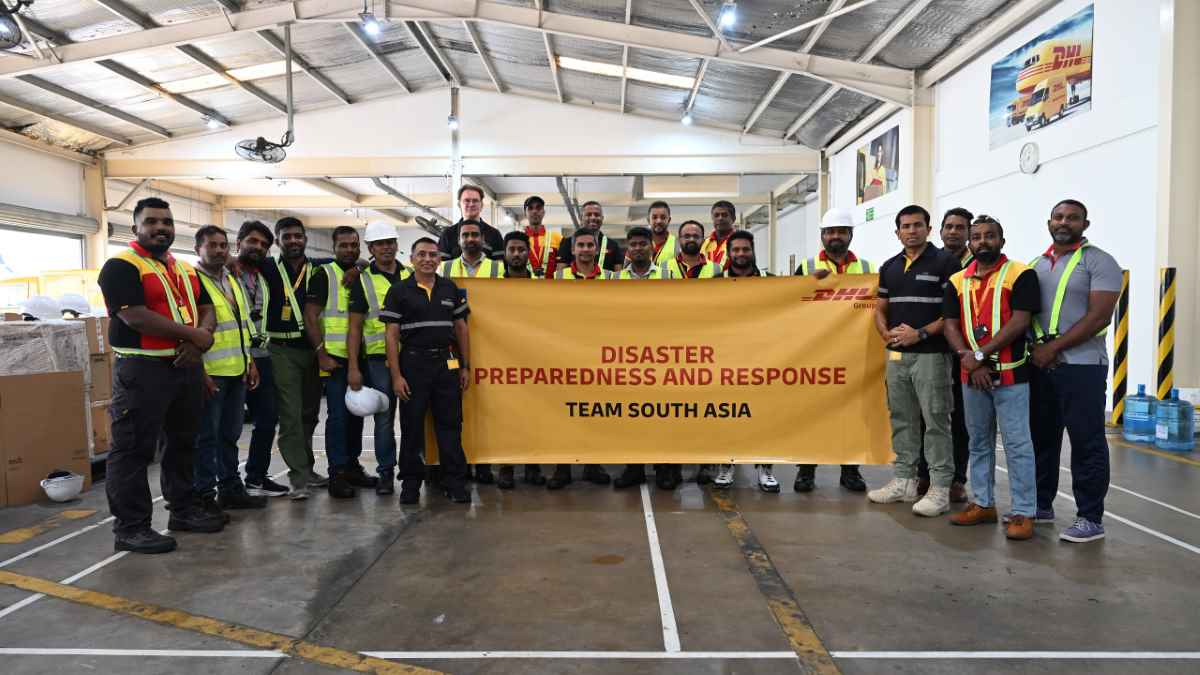CAPE TOWN, South Africa, February 26, 2026/APO Group/ –Access Bank Plc (
www.AccessBankPLC.com) is proud to announce the distinguished line-up of speakers for the second edition of the Africa Trade Conference (ATC 2026), scheduled to take place on March 11, 2026, at the Cape Town International Convention Centre, Cape Town, South Africa. Building on the strong foundation of its inaugural edition, ATC 2026 will convene an exceptional assembly of global and African leaders, policymakers, investors, and business executives committed to shaping the future of trade on the continent.
The Africa Trade Conference has rapidly emerged as a premier platform for advancing dialogue and action around Africa’s evolving role in global commerce. The 2026 edition will feature influential voices from across finance, government, development institutions, and the private sector, who will share insights on unlocking trade opportunities, strengthening intra-African commerce, enabling business expansion, and positioning African enterprises for global competitiveness.
The confirmed speakers represent a powerful cross-section of leaders driving Africa’s economic transformation.
Building on the momentum of its maiden edition, which convened senior decision-makers from 28 countries, the 2026 conference with the theme “Turning Vision into Velocity: Building Africa’s Trade Ecosystem for Real-World Impact”, will have the keynote address delivered by Kennedy Mbekeani, Director General, Southern Africa Region, African Development Bank (AfDB), alongside Kwabena Ayirebi, Managing Director, Banking Operations at the African Export-Import Bank. Their joint keynote will address the evolving financing landscape for African trade and the strategic pathways for unlocking continental prosperity.
The welcome address will be delivered by Roosevelt Ogbonna, CEO/GMD, Access Bank Plc, who will set the tone for discussions centered on trade transformation, financial inclusion, and regional competitiveness, while Tolu Oyekan, Managing Director & Partner at Boston Consulting Group, will deliver insights on “Africa Trade Outlook 2026”, examining emerging macroeconomic trends, supply chain shifts, and growth opportunities across key sectors. The CEO of Pan-African Payment and Settlement System, Mike Ogbalu, will be engaging the conference participants on the topic, “Building a Connected Africa Through Trade, Payments & Technology”, focusing on how payment interoperability and digital infrastructure can accelerate the African Continental Free Trade Area (AfCFTA) agenda.
The calibre of speakers confirmed for this year’s conference underscores the urgency and opportunity before us
The conference will also host a High-Level Ministerial Panel that features Elizabeth Ofosu-Adjare, the Minister for Trade, Agribusiness & Industry, Ghana; Tiroeaone Ntsima, Minister of Trade and Entrepreneurship, Botswana; Mr. Florian Witt, Divisional Head, International & Corporate Banking Oddo-BHF, Ms. Nathalie Louat – Global Director, International Finance Corporation (IFC), Dr Isaiah Rathumba – Head of Department, Limpopo Economic Development, Environment and Tourism and Mr. Alfred Idialu – Chief Rep Officer, Deutsche Bank among other policymakers shaping trade policy across the continent.
Commenting on the announcement, Roosevelt Ogbonna, Managing Director/Chief Executive Officer of Access Bank Plc, said:
“The Africa Trade Conference reflects our unwavering commitment to advancing Africa’s economic transformation by creating a platform that brings together the leaders, institutions, and ideas shaping the future of trade. The calibre of speakers confirmed for this year’s conference underscores the urgency and opportunity before us. Africa is not only participating in global trade, it is helping to redefine it. Through this convening, we aim to catalyse partnerships, unlock new opportunities for businesses, and accelerate Africa’s integration into global value chains.”
“At Access Bank, we see ourselves not just as financiers, but as connectors of markets, ideas, and opportunities. Our role is to help African businesses move from ambition to impact, from local relevance to global competitiveness.”
With operations in 24 countries globally, including 16 across Africa, Access Bank’s expansive footprint places it in a unique position to facilitate cross-border trade, unlock regional value chains, and simplify the complexities of doing business across markets.
“Our presence across Africa and key global corridors gives us a front-row seat to the realities of trade. It also gives us the responsibility to design solutions that are inclusive, scalable, and future facing. ATC 2026 is part of that commitment, Ogbonna added.
ATC 2026 is expected to catalyze partnerships, enable policy dialogue, and provide actionable strategies for businesses operating within and beyond the continent.
The Access Bank Chief puts it thus, “Africa will not be a spectator in the remaking of global trade. We will be one of its architects. ATC 2026 is where those blueprints will be drawn.”
For more information and registration, please visit https://apo-opa.co/4sdXWF7


 Business4 days ago
Business4 days ago
 Events4 days ago
Events4 days ago
 Energy4 days ago
Energy4 days ago
 Energy3 days ago
Energy3 days ago
 Events4 days ago
Events4 days ago
 Business3 days ago
Business3 days ago
 Business3 days ago
Business3 days ago
 Business3 days ago
Business3 days ago











